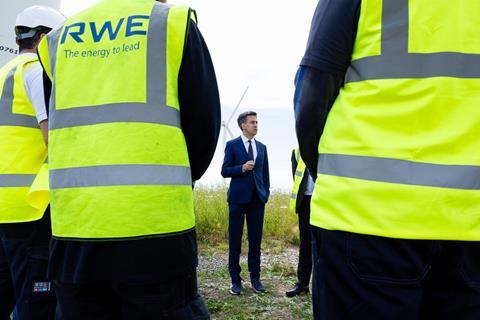Previous government ‘damaged’ UK’s reputation progress towards climate goals
The UK will need to see ambitious action in the energy, transport and buildings sectors if it is to meet its 2030 emissions target, according to the Climate Change Committee (CCC).
In its latest progress report, the CCC revealed its assessment that only a third of emission reductions required to achieve the 2030 target were currently covered by credible plans.

The committee said much of the low carbon technology needed for the transition was already available but that the scale up and roll out of the technology was off track.
It said annual offshore wind installation needed to triple, onshore installations needed to double and solar installations needed to increase by five times.
Approximately 10% of existing homes in the UK will need to be heated by a heat pump by 2030, compared to only approximately 1% today.
Its priority list of 10 recommendations included suggestions that the government remove planning barriers for heat pumps, electric vehicle charge points and onshore wind.
It also recommended the introduction of a comprehensible programme for decarbonisation of public sector buildings, acceleration of the electrification of industrial heat, publish a strategy to support skills in key sectors and strengthen national adaptation policy.
The CCC drew attention to the “damage” done by previous government rollbacks as well as the “confusing” messaging of that government on the issue, which it said had caused significant uncertainty about the UK’s commitment to Net Zero.
It suggested reversing some of these recent policy rollbacks, including removing the exemption of 20% of households from the 2035 fossil-fuel boiler installation phase-out.
>> Read more: New government sets out plans for housing and infrastructure in first King’s Speech
>> Read more: ‘Step in the right direction’: Construction reacts to the King’s Speech
Responding to the report, David Hawkes, interim associate director of policy at the Institution of Civil Engineers (ICE), said “delays, reversals and inconsistent plans” had hindered the UK’s decarbonisation progress.
“With the roll out of many low-carbon technologies behind schedule, the new government is going to have to act fast to meeting the 2030 target,” he said, arguing that the focus needed to shift to supporting public behaviour changes and adapting the UK’s existing infrastructure for climate change.
“Two key things the government could do are, address barriers to installing heat pumps and buying electric cars and make the Adaptation Reporting Power from the UK Climate Change Act mandatory,” said Hawkes.
He added that the focus on energy, transport, devolution and planning reform in the King’s Speech had been encouraging.
Professor Piers Forster, interim chair of the CCC, said the new Labour administration was “off to a good start”.
“The new government has an opportunity to course-correct but it will need to be done as a matter of urgency to make up for lost time,” he said.
“Action needs to extend beyond electricity, with rapid progress needed on electric cars, heat pumps and tree planting.”


























No comments yet